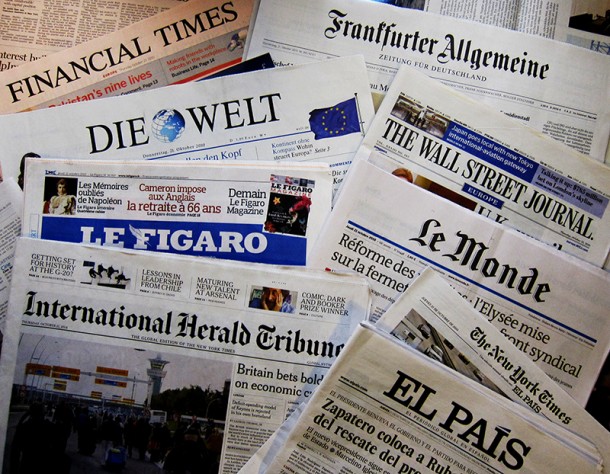Recently, Reporters Without Borders – rsf –, a French non-profit organisation established in 1995, published its annual report on the freedom of press and information in the world. According to the rsf report, the 2015 World Press Freedom Index, at the top is Finland followed by Norway, Denmark, the Netherlands and Sweden; at the bottom we find Turkmenistan (178th), the Democratic People’s Republic of Korea (179th) and Eritrea (180th). Italy is ranked 73rd out of 180 countries. More than ten years ago, in 2002, Italy was ranked 40th out of 134 countries, in 2007 it was 35th out of 164 and in the last years its position dropped dramatically. In the 2015 report it is stated that “The situation of journalists worsened dramatically in Italy in 2014, with a big surge in attacks on their property, especially cars. A total of 43 cases of physical aggression and 7 cases of arson attacks on homes and cars were reported during the first 10 months of 2014. Unjustified defamation suits also rose, from 84 in 2013 to 129 in the first 10 months of 2014. Elected public figures filed most of these lawsuits, which constitute a form of censorship.”
In addition to the World Press Freedom Index, it is interesting to have a look also at the Freedom of the Press 2015 report by Freedom House, an independent watchdog organisation whose commitment is devoted to monitor and expand freedom in the world. According to Freedom House, from 2002 to 2004 and from 2007 to 2009 Italy was being a free country as far as freedom of press and information are concerned, yet from 2004 to 2007 and from 2009 up to this day Italy has been a partly-free country. The main reasons for this situation are Berlusconi’s conflict of interest – when he was prime minister he controlled the two main Italian media groups: his own group, Mediaset, and the public television service, RAI – with a consequent high concentration of media ownership and the threats and attacks to journalists from organised crime networks, along with “criminal sanctions for defamation” and “political interference over public broadcasting” as Freedom House reports.
In particular, according to Ossigeno per l’Informazione, an Italian watchdog which constantly examines and checks the situation of journalism in Italy, 206 journalists have been threatened this year: 28 were physically assaulted, 54 received warnings, 15 suffered from damages, 102 were charged or involved in legal actions and 7 were hampered in their job. One of the worst and most dangerous problems for Italian journalists are the threats and attacks from the organised crime. Because of the risky conditions and environment in which they have to work, some journalists have been living under constant police protection: one of the most famous cases of the last years is Roberto Saviano, the author of Gomorrah which deals with Camorra, the Neapolitan mafia. Similarly Sandro Ruotolo, a well-known Italian journalist, was threatened in May this year by a boss of Camorra who, from the maximum-security prison where he is detained, informed his men that he wants Ruotolo to be killed. These are only two examples of a long list of journalists who along the years have been subjected to intimidations – and worst – by organised crime.
Despite this troubled situation, the Italian journalism landscape is rich and fruitful and journalists are fully aware of the problems they have to face and have their opinions on possible solutions. Many of them raised their concern on the issue of the independence of media from politics and the government, the vulnerability of investigative journalism and the need of a change in the media system. For instance, during a lecture on journalism in Rome in early 2009, Enrico Mentana, the most famous Italian news anchormen, claimed that RAI should be freed from a board of directors chosen by the Parliament, the public service should be thus free, independent and autonomous from the requests of political parties. On the same occasion, in 2011, Riccardo Iacona, one of the best investigative journalists in Italy who hosts a programme on RAI3 which deals with the greatest – and most ignored – problems of the country, underlined the importance of telling more ordinary people’s stories because it is through those stories that politicians and the civil society get in touch with the real, most sad and troubled face of Italy on the one hand and the most positive energies, actions and ideas on the other.
Italy needs a clear legislation which rules and guarantees the freedom of press and information on any media, be it the public television service or the smallest private radio or paper because such problems are one of the many signs of the weakness of the Italian democracy and they should be solved sooner than quick. Moreover, it is deeply unfair and anti-democratic that journalists should live under police protection, have to face legal actions every other day because they criticise the decisions of a politician or because they investigate the many illegal practices and corruption episodes which take place every day in the country. Truth needs to be free and to be spread by every possible means because if truth is free to circulate, only then a civil society can consider itself free and fully democratic.

